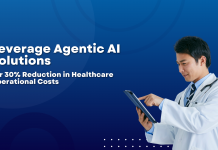The world is on the verge of dramatic shifts as innovative technology is introduced, which brings forth the eye-popping revolution each day. It is not even the mid of 21st century, yet society has drastically changed. We are anticipating what the era of 2030 would be like. Technology has taken over every field and every industry and is spread in each corner of the world.
We are interested in finding out the impacts it will have on the world and what else would it give to the people. Would benefits be greater than drawbacks, or it would be the other way around? This article has put forward information about the technologies that will take over the coming era.
5 Technologies That Will Change The World By 2030
Ultrathin Electronics
It is anticipated that by 2030, flexible devices and flexible displays will become a common occurrence. It will allow users to fold their devices hence increasing the portability. Flexible displays will be made possible by the OLED (Organic Light-Emitting Diodes), and MicroLED will be able to facilitate the integration of different components such as smartphones, tablets, and wearables.
In the field of energy harvesting and storage, the efficiency and flexibility of solar cells will be increased. This improvement will lead to the seamless integration of solar energy into buildings, vehicles, and portable devices. Ultra-thin electronic batteries will become more potent, durable, and long-lasting, fostering the expansion of electric vehicles and portable electronics. Consequently, the expansion of vehicles and portable devices will be fostered.
The development of ultrathin sensors will help detect potential hazards while monitoring the road condition in real time, thus will promote road safety. In addition to it, hybrid vehicles and electric car development will be facilitated, which will be able to reduce carbon emissions. By 2030, sustainable transportation solutions will become common all over the world.
AI As A Digital Collaborator To A Human Race
AI has proved to be a transformative technology that brought advancements in various fields and is yet to bring many unprecedented developments in fields such as healthcare, education, business, and telecommunication.
The world is always on the brink of something amazing, and so will it be by 2030, because AI will foster economic growth by providing virtual assistance to the human race. It will have the potential to interpret and comprehend the natural language and the preferences of the user. It will promote powerful collaboration between AI and the user, which will eventually lead to innovations and economic growth. AI will have the capability to manage the day-to-day task of scheduling, email management, and data analysis.
Significant advancements will be profound in the healthcare sector. The advanced Algorithm will be able to diagnose diseases and disorders more accurately. It will bring significant improvements in patient care services by unveiling personalized treatment options to cater to individuals’ unique needs. Improvements in personalized treatments will become possible as AI will have the potential to analyze individuals’ genetic data for the prevention of fatal diseases and disorders.
Drug discovery will prove to be another landmark as AI algorithms will aid in forming drug designs and virtual screening. Identification of the best suitable molecules among numerous compounds will be facilitated by virtual screening to interact with a given target by predicting the binding affinity and activity of these molecules.
Restoration Of Lost Memories Through Artificial Brain Implantation
Memory loss is devastating for all individuals, but the ones who mostly suffer are individuals with Alzheimer’s disease, dementia, and brain traumas, as it is one of the integral parts of our identity and experiences. A glimpse of hope for recovering forgotten information comes from the developing science of artificial brain implantation.
Brain-Computer Interfaces (BCIs) is such a device that allows for two-way communication between the brain and external device. By the year 2030, BCIs will have progressed to the point where they can successfully and carefully interact with the memory-related neural circuits in the brain. Brain-computer interfaces (BCIs) have the potential to restore or improve memory by recording neural activity and delivering electrical or optogenetic stimulation to particular brain areas.
By 2030, there will be advancements in algorithms of machine learning and big data that will effectively decode the patterns of cerebral activity in large amounts. The algorithm will have the ability to learn and adapt data to pave the way for the creation of memory restoration strategies that are uniquely suited to each person’s brain patterns.
Genomics And Precision Medicine
Innovative technology has greatly influenced the field of genomics. Genetic sequencing will become common worldwide, and therefore its price is predicted to drop by 2030. Genetic variation results in various diseases for which cures become impossible to discover. Advancements in this field will help in discovering the cure by changing the sequence of genes.
Medical professionals will be able to study in depth the DNA of an individual to detect the disease risk and find the best treatment possible. An in-depth analysis of DNA will reduce the risk of an individual developing a certain disease that is not yet triggered by any environmental stimuli.
For the advancements in precision medicines, genetic information can be shared when doing collaborative research. Securely dealing with genetic information and ensuring its confidentiality will accelerate the process of finding treatment and the clinical application of genomic findings.
5G And Enhanced Connectivity
5G will revolutionize faster connectivity, lower latency, increased capacity, and several opportunities for individuals and industries alike. With its faster data transfer speed, 5G will allow immediate downloads and uploads allowing media content creators and influencers to improve their potential. The enhanced connectivity that would be provided by 5G will enable the existence of advanced applications, like Augmented Reality, Virtual Reality, and alluring experiences.
It will enable the development of smart cities with updated factors like proper traffic control and energy efficiency etc. With its high bandwidth capacity, 5G will allow enhancement in communication helping with businesses, quick data transfer, and increased productivity. It will have a significantly quicker response time as well as the ability to support a higher amount of devices, making it ideal for the rapidly expanding Internet of Things (IoT) ecosystem.
Conclusion
Conclusively, technology, or more specifically, AI has taken over every aspect of human life. You may not find any field where technology is not a necessity. To raise the productivity and efficiency of businesses, introducing sustainable technology is the main target. The aim is not just to expand businesses in a modern way, but introducing eco-friendly technology is also the main target.
Author Bio: Alena James is a digital marketer at VogueTonic, assisting clients from different industries
with their marketing efforts. With hands-on experience in delivering high-quality content for a wide
array of topics, she is exceeding the expectations of clients.






